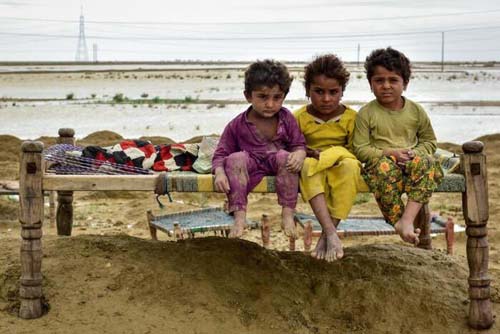
Ali Rehman Malik seeks more international support for flood affectees in Pakistan
Staff Writer
Islamabad: Ali Rehman Malik, son of former Interior Minister Rehman Malik, urged for more international support for the flood affectees in Pakistan.
In a tweet, he said by mid-January 2023, as many as 4 million children were still living near contaminated and stagnant flood waters, risking their survival and wellbeing.

“Frail, hungry, children are fighting a losing battle against severe acute malnutrition, diarrhoea, malaria, dengue fever, typhoid, acute respiratory infections, and painful skin conditions. As well as physical ailments, the longer the crisis continues, the greater the risk to children’s mental health,” he added.

Ali Rehman Malik said his Institute of Research and Reforms Pakistan (IRR) will be working with key players to ensure that the thousands of souls left stranded without food, shelter or clothing are helped in rebuilding their lives.
“IRR will be working with key players to ensure that the thousands of souls left stranded without food, shelter or clothing are helped in rebuilding their lives,” he maintained.
Hundreds of thousands of homes and many public health facilities, water systems, and schools have been destroyed or damaged. The aid promised by the international community is welcomed but the road ahead is long and arduous, he remarked.
Six months since extreme flooding submerged one third of Pakistan, around 5 million people remain living in flooded areas, while food insecurity and malnutrition across the country has intensified.

The International Rescue Committee (IRC) is warning that an estimated 14.6 million people are in need of food assistance, including 8.6 million people who are experiencing an extreme level of food insecurity and are facing impossible decisions on how to cope, skipping meals and selling off assets.
With farmland and agriculture still submerged, families are unable to grow food or earn an income. Women and children are at risk of exploitation and abuse, while families are forced to sell assets to make ends meet.
As winter takes hold and temperatures drop to below freezing, many communities affected by the floods now face the daunting challenge of surviving without housing, food, clean water and fuel sources for warmth.
Since the floods started in July 2022, the IRC scaled up its emergency response and is now present in 20 districts, delivering lifesaving assistance including shelter, health services, emergency cash assistance, winterisation and dignity kits and the provision of safe drinking water, to almost 1 million people.
This includes over 230,000 women and girls, who are at particular risk of violence and exploitation during times of crisis, and have been supported with services such as safe spaces and medical care.
